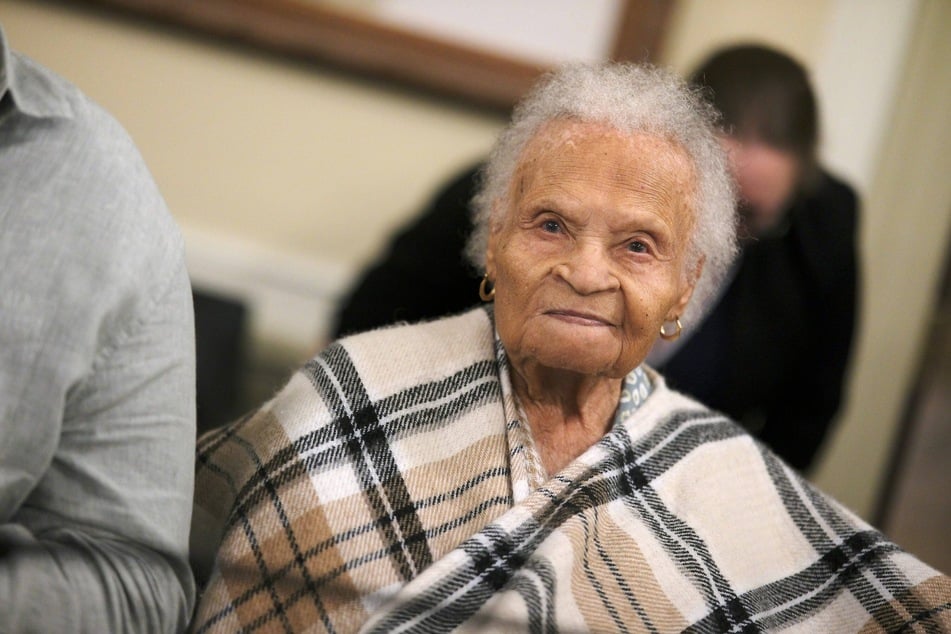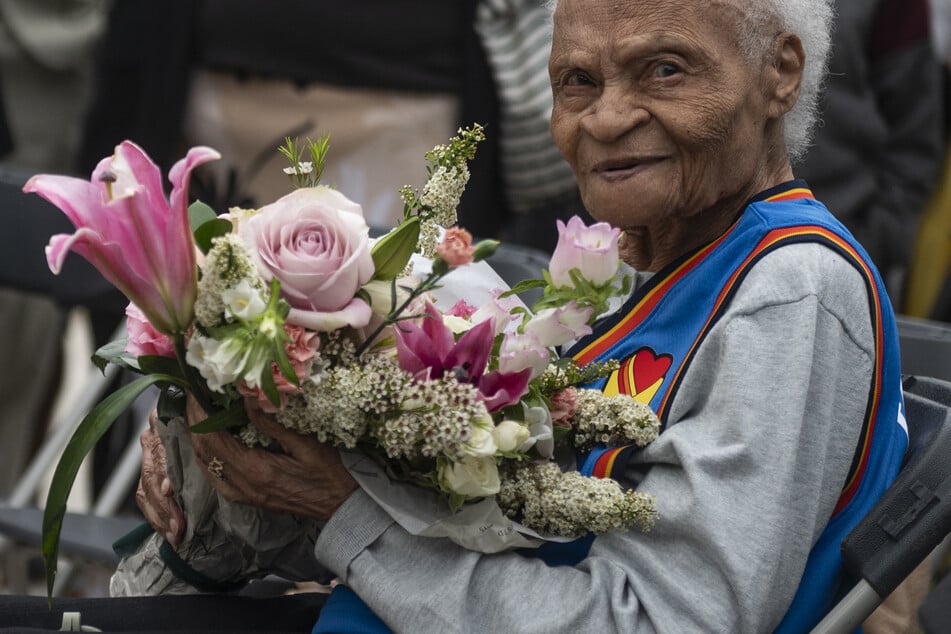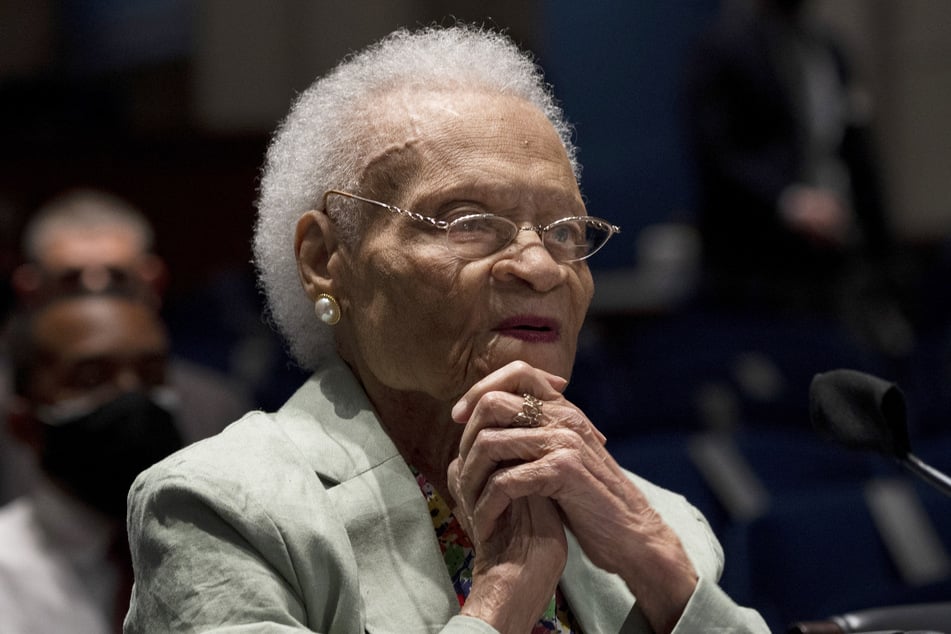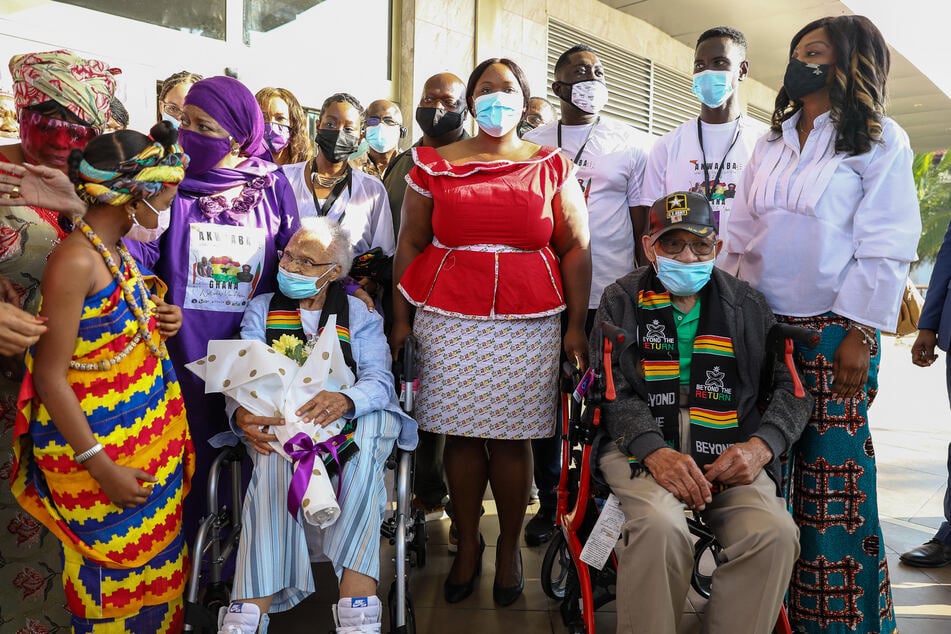Viola Ford Fletcher, 1921 Tulsa Race Massacre survivor, dies seeking justice and reparations
Tulsa, Oklahoma - Viola Ford Fletcher, one of the last living survivors of the 1921 Tulsa Race Massacre, has passed away at the age of 111 – without receiving reparations.

Fletcher was just seven years old when she lived through one of the worst acts of racist violence in US history.
Over May 31 and June 1, 1921, law enforcement officers and deputized civilians slaughtered at least 300 Black residents and destroyed 35 square blocks of Tulsa's Greenwood neighborhood, known as Black Wall Street.
In her memoir, Don't Let Them Bury My Story, Fletcher recalls passing terrified neighbors running for their lives or lying dead in the streets as her family tore out of town on a horse-drawn wagon.
"Greenwood allowed us all to dream, to envision the promise of America. And within a few hours, the dream became a nightmare," Fletcher wrote.
"In hindsight, I can now understand why those who attacked our community used firebombs and torches. It would not be enough to beat us physically. We would have bounced back from that. But Greenwood represented Black progress and autonomy. Tulsa's White community at the time held our success in contempt, viewing it as a threat to their own."
"To burn our community to the ground was the only way to truly destroy it... and everything we stood for."
Abiding memories of the Tulsa Race Massacre

After the massacre, authorities sought to cover up the crimes by destroying police records and burying bodies in unmarked mass graves. Survivors were confined in concentration camps and forced to clean and rebuild their community without any compensation.
Fletcher and her family fled to Claremore, Oklahoma, where she said they lived out of a tent for years. The family found work as sharecroppers, working from sunup to sundown for just $1 a day.
"We had no place to call home, no familiar faces to rely on, and no idea of what the future held for us," she said in her memoir. "We were strangers in a strange land, trying to make sense of a new reality that had been forced upon us."
"As Black individuals in the Jim Crow era, we had to endure physical challenges like picking cotton, but the discrimination, mistreatment, and low wages we faced were degrading and added to our burden."
Due to the massacre, Fletcher did not finish school after the fourth grade. She worked as a trained welder in a Los Angeles shipyard during World War II before spending most of her working life as a housekeeper for white families, struggling to make ends meet while raising three children as a single mother.
Fletcher lived in Tulsa, California, and New Mexico before settling in Bartlesville, Oklahoma. No matter where life took her, she never forgot the trauma she experienced as a child.
"The horrors were etched into my mind like a movie ree[l]," she wrote. "They disrupted my sleep and invaded my waking thoughts. I would often wake up drenched in sweat, my heart pounding in my chest as a scene of flames, gunshots, and screams played out in my mind."
"I could never forget the charred remains of our once-thriving community, the smoke billowing in the air, and the terror-stricken faces of my neighbors."
Viola Ford Fletcher's fight for accountability and repair

Fletcher was relentless in her quest for accountability and repair for the ongoing harms caused by the Tulsa Race Massacre.
She joined her late brother Hughes Van Ellis and fellow survivor Lessie Benningfield Randle in launching a historic reparations lawsuit against the City of Tulsa, Tulsa County, the Tulsa Regional Chamber, the Oklahoma National Guard, and others.
The suit, charging defendants with creating an ongoing public nuisance that continues to hurt Greenwood survivors and descendants today, was dismissed by the Oklahoma Supreme Court in June 2024.
This past June, Congressman Al Green introduced legislation – the Original Justice for Living Survivors of the 1921 Tulsa/Greenwood Race Massacre Act – seeking more than $20 million in compensation for Fletcher and Randle.
Green's announcement followed Tulsa Mayor Monroe Nichols' launch of a $105-million reparations plan on the 104th anniversary of the massacre. The private charitable initiative will prioritize investments in affordable housing and homeownership, cultural and historic preservation, and economic development and education, including student scholarships and small-business grants.
The developments came after Justice For Greenwood in February unveiled a Project Greenwood blueprint calling for comprehensive actions to address the legacy of the massacre and to compensate the living survivors.
"I am asking that my country acknowledge what has happened to me. The trauma. The pain. The loss. And I ask that survivors and descendants be given a chance to seek justice," Fletcher said in testimony before the congressional Civil Rights and Civil Liberties Subcommittee in May 2021.
"Greenwood represented the best of what was possible for Black people in America – and for all people. No one cared about us for almost 100 years. We, and our history, have been forgotten, washed away. This Congress must recognize us, and our history – for Black Americans, for the White Americans, and for all Americans. That is some justice."
"Her spirit was still in it"

Fletcher maintained a special relationship to Ghana.
She and Ellis embarked upon the journey of a lifetime to the West African country in 2021, where Fletcher was crowned a queen mother and dubbed "Naa Lamiley" ("Somebody who is strong. Somebody who stands the test of time").
In March 2023, the siblings were granted dual citizenship in a special ceremony.
Attorney Damario Solomon-Simmons, who represented Fletcher in her reparations fight, said that even in her last days, the supercentenarian was fully committed to the struggle for justice.
"She was tired – because this fight is exhausting – but her spirit was still in it," Solomon-Simmons said. "She still believed that in her lifetime, she might see the City of Tulsa do the right thing."
"She deserved that. She earned it a thousand times over. And the fact that she died without receiving any meaningful redress – not for herself, her family, or her community – isn't just a legal failure. It's a moral one," he added.
Randle, now the only known living survivor of the massacre, turned 111 earlier this month.
Cover photo: IMAGO / Imagn Images

